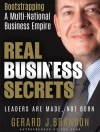Signaling the changing demography of the workforce, the largest percentage of new workers in the coming decades will be individuals often labeled as ‘nontraditional’ employees. This new diversity presents both challenges and opportunities to individuals and to the organizations of which they are a part. Benefits include a broader talent pool and the opportunity for individuals to more fully develop their potential. At the same time, however, new perspectives on creativity, innovation, and performance can be perceived as intrusive and lead to tension, misunderstanding, and even hostility between old and new, creating problems of coordination and cohesion for diverse organizations. The editors of Diversity in Organizations gather forces to work out the difficulties generated by diversity and reap the rewards. Applying varied perspectives and approaches–such as analysis of individual psychology, dyadic interactions, small group dynamics, and organizational outcomes–the contributors provide scholarly coverage of a topic that is both contemporary and foresightful. The current interest in diversity in organizations makes this book a boon to scholars and students in a variety of fields, including psychology, social psychology, management and organization studies, sociology, social work, cross-cultural studies, and public administration, as well as to interested readers who seek a deeper understanding of the problems and promise inherent in diverse organizations.
Tabela de Conteúdo
An Introduction to Diversity in Organizations – Martin M Chemers, Mark A Constanzo and Stuart Oskamp
PART ONE: INDIVIDUAL REACTIONS TO DIVERSITY
A Theoretical Framework for the Study of Diversity – Harry C Triandis
Cultural Identity and Diversity in Organizations – Bernardo M Ferdman
Bridging the Gap between Group Differences and Individual Uniqueness
An Analysis of Work Specialization and Organization Level as Dimensions of Workforce Diversity – Taylor H Cox Jr and Jocelyn A Finley
PART TWO: DIVERSITY EFFECTS ON GROUPS AND TEAMS
Diversity, Power and Mentorship in Organizations – Belle Rose Ragins
A Cultural, Structural and Behavioral Perspective
Diversity in Decision-Making Teams – Valerie I Sessa and Susan E Jackson
All Differences Are Not Created Equal
Leadership and Diversity in Groups and Organizations – Martin M Chemers and Susan E Murphy
PART THREE: ORGANIZATIONAL PERSPECTIVES ON DIVERSITY
Diversity in Organizations – Anne S Tsui, Terri D Egan and Katherine R Xin
Lessons from Demography Research
Organizational Implications of Diversity in Higher Education – Daryl G Smith
A Diversity Framework – R Roosevelt Thomas Jr
Sobre o autor
Stuart Oskamp (Ph.D., Stanford University) has focused his research interests in the areas of attitudes and attitude change, applied social psychology, behavioral aspects of energy and resource conservation, and social issues and public policy. His books include Attitudes and Opinions and Applied Social Psychology. He has been elected a member of the American Psychological Association (APA) Council of Representatives and President of the Society for the Psychological Study of Social Issues (SPSSI) and of the APA Division of Population and Environmental Psychology. He has also served as editor of the Journal of Social Issues and of the Applied Social Psychology Annual. Since 1984 he has organized the Claremont Symposium on Applied Social Psychology and co-edited the resulting annual volume published for many years by Sage Publications and now published by Erlbaum.












